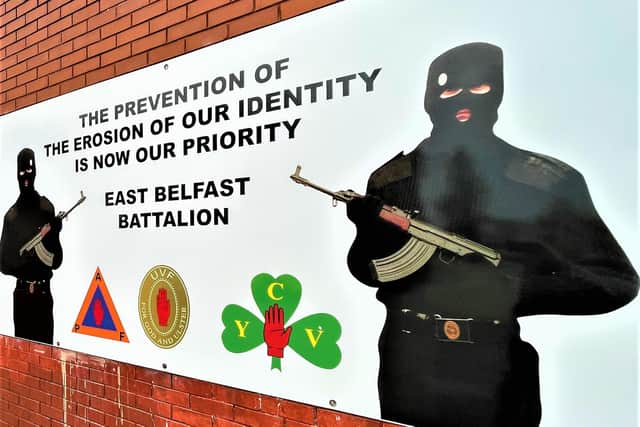PUP on Protocol: If we knew in 1994 what we know today about the Good Friday Agreement we would never have had UVF ceasefire
and live on Freeview channel 276
The party issued a statement in the wake of the Supreme Court judgement which binned a two-year-long case by unionists to have the Protocol declared unlawful.
But despite the court defeat, unionists have said that the text of the ruling actually vindicates their belief that the constitutional place of NI has been undermined by the Protocol, regardless of whether it is technically illegal or not.
(See the Twitter link in this story)
Advertisement
Hide AdAdvertisement
Hide AdIn a statement from PUP deputy leader Russell Watton, a Coleraine councillor and former UVF man, said: “In 1998 this party supported the Belfast Agreement based upon fundamental promises as to supposed safeguards for the Union.
"In 1994, we argued for, and ultimately persuaded, loyalists to call a ceasefire.
"The basis of both loyalism's support for the Belfast Agreement and our ability to bring about the cessation of violence in 1994 was based upon the promise that the principle of consent operated to guard against any lessening of Northern Ireland's constitutional status as part of the United Kingdom.
"The Supreme Court has now decisively confirmed that the principle of consent does not in fact protect the Union, but instead only aims itself to the concluding surrender of sovereignty.
Advertisement
Hide AdAdvertisement
Hide Ad

“I am deeply concerned by this and on a personal level I feel betrayed.
"Our party leader said last year, and I repeat again now: Had we known that the principle of consent was in fact purely symbolic, we would never have won the argument in 1994 and could not in good conscience have recommended to loyalists that they support the Belfast Agreement in 1998.”